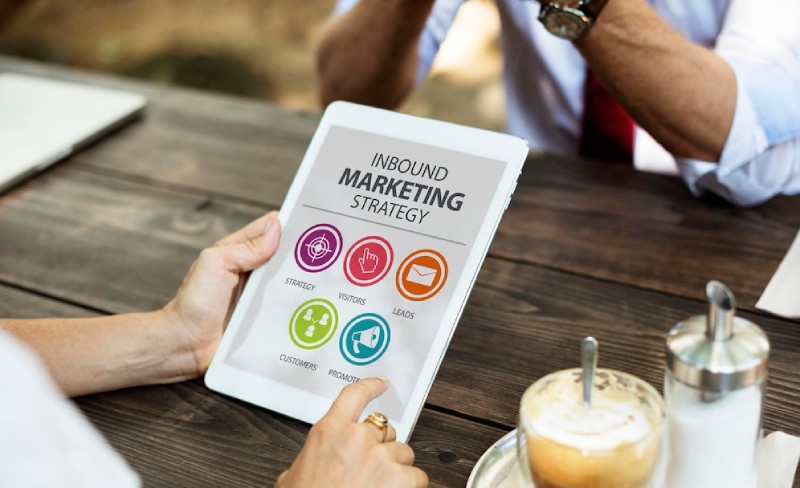In today’s hyper-competitive business landscape, B2B marketing strategies play a crucial role in driving growth, revenue, and success. Among these strategies, inbound marketing has gained substantial attention and acclaim. But is inbound marketing exclusively effective for B2B businesses, and how does it compare to referral and outbound marketing in the B2B realm? This article explores these questions to shed light on the intricacies of B2B marketing strategies.
Table of Contents
Inbound Marketing: A B2B Powerhouse
Inbound marketing is a methodology that focuses on creating valuable content and experiences to attract and engage a target audience. It’s all about being found by your ideal customers rather than interrupting their daily lives. In the B2B sector, inbound marketing has proven to be highly effective for several reasons:
1. Targeted Content:
Inbound marketing allows B2B businesses to create content that caters to the specific needs and pain points of their audience. This approach helps build trust, establish expertise, and position the business as a valuable resource.
2. Lead Generation:
By providing educational content, B2B companies can attract prospects who are actively seeking solutions to their problems. This not only generates leads but also ensures they are high-quality and more likely to convert.
3. Cost-Efficiency:
Inbound marketing often requires an initial investment in content creation and SEO, but once established, it can continue to generate leads and sales organically, reducing long-term marketing costs.
4. Measurable Results:
Inbound marketing is highly trackable, allowing B2B marketers to measure the effectiveness of their strategies and adjust their approach accordingly.
5. Long-term Relationships:
Building relationships with potential clients through valuable content and engagement fosters long-term loyalty and repeat business.
Referral Marketing in B2B
Referral marketing, or word-of-mouth marketing, is another powerful strategy within the B2B sphere. In this approach, businesses leverage their existing clients or partners to refer new customers. Here are a few reasons why referral marketing is effective for B2B:
1. Trust and Credibility:
Referrals come with a built-in level of trust. When one business recommends another, it carries weight, making it easier to establish credibility.
2. High-Quality Leads:
Just like inbound marketing, referrals often result in high-quality leads. Existing clients or partners are likely to refer businesses that they believe can genuinely benefit from the service.
3. Cost-Effective:
Referral marketing can be highly cost-effective, as it relies on the goodwill of satisfied customers rather than costly advertising campaigns.
4. Speed:
Referral marketing can lead to faster sales cycles, as trust and recommendation from a reliable source can accelerate decision-making.
Outbound Marketing in B2B
Outbound marketing is as trendy as inbound and has a place in the B2B marketing landscape. This approach involves reaching out to potential customers through various means, such as cold calls, email marketing, and advertising. Here’s why it’s relevant in B2B:
1. Scalability:
Outbound marketing can be scaled quickly, making it a suitable choice for businesses looking for rapid growth or those with aggressive sales targets.
2. Direct Approach:
Outbound marketing allows you to communicate directly with potential customers, making it easier to convey your message and value proposition.
3. Immediate Impact:
Outbound marketing can yield immediate results, making it a valuable strategy when you need to drive sales quickly.
4. Event Promotion:
For B2B companies, outbound marketing can be particularly effective for promoting events, webinars, or product launches.
Comparing Inbound, Referral, and Outbound Marketing
Now, let’s briefly compare these three B2B marketing strategies to help you understand their strengths and weaknesses:
1. Lead Quality:
– Inbound marketing and referral marketing both generate high-quality leads due to their targeted nature and the trust factor. Outbound marketing, while effective, may produce lower-quality leads as it relies on reaching out to a wider audience.
2. Cost Efficiency:
– Inbound marketing and referral marketing are generally more cost-efficient in the long run, as they rely on organic and referral-generated leads. Outbound marketing can be costly, especially if you need to run extensive advertising campaigns.
3. Trust and Credibility:
– Inbound marketing and referral marketing excel in building trust and credibility over time. Outbound marketing can be effective, but it may require extra effort to establish trust with cold prospects.
4. Speed:
– Outbound marketing is the fastest in terms of generating immediate results. Inbound and referral marketing may take time to yield results but offer long-term benefits.
Conclusion:
Inbound marketing is not exclusively effective for B2B businesses, but it is a powerhouse strategy that aligns well with the industry’s unique needs and characteristics. Referral marketing and outbound marketing each have their strengths and can be used in conjunction with inbound marketing to create a well-rounded B2B marketing strategy.
To decide which strategy is right for your B2B business, consider your goals, budget, timeline, and the nature of your target audience. In many cases, a blend of inbound, referral, and outbound marketing can deliver the best results, allowing you to reach a wider audience and generate high-quality leads while building trust and credibility in the B2B sector.
Kredis is one of the leading inbound and outbound service providers in India. We are in lead generation, Digital Marketing, and Intent Marketing. We have catered to more than 100 clients. A combination of Inbound and Outbound is a secret sauce to deliver desired results.



